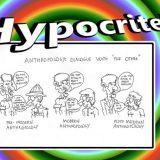The Politics of Remembering, the Economics of Forgetting (Article Review)
If you would like to read the original article first, follow the link.

This book was one of the first books I found about contemporary popular music in Viet Nam. While I haven’t been able to read the book yet, I was able to find some reviews by other scholars. Here is the description of Popular Music of Vietnam on Amazon:
Based on the author’s research in Ho Chi Minh City, Hanoi, and other urban areas in Vietnam, this study of contemporary Vietnamese popular music explores the ways globalization and free market economics have influenced the music and subcultures of Vietnamese youth, focusing on the conflict between the politics of remembering, nurtured by the Vietnamese Communist government, and the politics of forgetting driven by the capitalist interests of the music industry.
Vietnamese youth at the end of the second and beginning of the third millennium are influenced by the challenges generated by a number of seemingly opposite ideologies and realities, such as “the past” versus “the present,” socialism versus capitalism, and cultural traditionalism versus globalization. Vietnam has undergone a radical demographic shift with a very pronounced youth movement, and consequently, Vietnamese popular culture has been radically reshaped by a young population coming of age in the twenty-first century. As Olsen reveals, the way Vietnamese young people cope with these opposing and contrasting forces is often expressed in their active and passive music making.
Olsen explores the unknown territory of popular music in Vietnam through the lens of ethnomusicology in the first full-length book on the subject. While I do think that I will eventually read this book to form my own opinion, several critiques made by other scholars pointed out some problematic issues in Olsen’s book. In order to prepare myself better for this assignment and future projects, I will be dissecting some of those critiques.
I’ll start with the only customer review on Amazon.com. While comments on a website are not always reliable, they do give us insight into how the book may be received by others:
“book is way too expensive: it’s is pretty much a compiling of singers. his engagement of the music and vietnam is limited and done so through translators and translation. i think he should have invested more time in learning the language, cultural immersion, and establishing a better relationship with the community before he pursue his research, because it reflects in his superficial presentation of the pop music life in HCMC. his project is overly invested in tourist sites such as over-pricde night clubs in the 1st district. moreover, if the bulk of his project is to compile singers background info, then Dam Vinh Hung should have in it. –Also need to include more stuff dealing with transnational, gender, and race politics.”
“that being said, Olson is brave and attempting to do what that many people has no done. he’s dealing with the music that more contemporary. Jason Gibbs publish an article on VN rock music not to long ago, but mostly the scholarship on VN pop music in English needs to be updated. in the diaporic community, only a few have published stuff on VN music or music related…Reyes, Phong Nguyen, Deborah Wong… it’s a shame that Valverde never turned her dissertation into a book. wish there was more action.”
-USN: Avatar Aang (June 8, 2010)
I also found one scholarly review of this book from the JSTOR research database. Feel free to read it here. The main issues brought up in both the comment from Amazon.com and the article include Olsen’s heavy reliance on translators and translation into English, his use of the term “Americanization” and how it under-emphasizes the impact of French and Chinese presence, and the exclusion of direct testimonies from young Vietnamese consumers of popular music. This results in a misrepresentation of the people subjects in Olsen’s research.
In order to avoid these blunders, I’ve developed a list for myself to reference in my future research:
- Spend time learning the Vietnamese language before interviewing so I can collect data in its natural form.
- Utilize Vietnamese sources such as books, magazines, newspapers from both the diaspora and the home-country.
- Investigate the history of foreign occupation in Vietnam, in order to better understand how music changed and evolved over time.
- Include the younger generations in my research in order to better represent the perspectives of the majority of VPop listeners.
















tubidy mobi video and mp3 search engine
Thank you very much. bloodmoney
best place to buy winstrol
References:
https://deltasongs.com/ariannehoolan
Subsequently, the support for its therapeutic uses is limited, albeit largely optimistic. Our sequence on therapeutic peptides has taken us through articles on tons of of clinical research and other scientific sources on the topic, spread over more than 1,000 cumulative hours. KPV alone involved a quantity of dozen such sources and upwards of 30 hours. Along the way in which, we leaned on our relationships with individuals who know peptides on the bottom stage — both prescribers and patients. Though KPV isn’t an FDA-approved drug with widespread human use, these sensible views have allowed us to deduce its relative place within the bigger peptide panorama. “In terms of the safety profiles of α-MSH and its tripeptides, only a few knowledge are currently out there due to lack of toxicity studies.
It is important to seek the assistance of with a healthcare professional earlier than utilizing any new complement or peptide. This strategy guarantees that the peptide is delivered directly to the particular areas of the gastrointestinal tract where it is most wanted, thereby optimizing its efficacy. By Way Of tailored supply mechanisms, corresponding to encapsulation or nanoparticle carriers, KPV Peptide can bypass undesirable degradation within the body and efficiently reach its intended target. Its antimicrobial effects were demonstrated on two main pathogens known as S. KPV, with its anti-inflammatory and anti-microbial properties, can be very useful for combatting these microbes and healing wounds.
KPV’s efficacy largely depends on its transport across the cell membrane, a course of facilitated by the PepT1 transporter. This transporter is crucial in shifting KPV into intestinal epithelial cells, significantly significant in situations like inflammatory bowel illness (IBD), the place PepT1 exercise is up-regulated. KPV has also been proven to reduce the irritation that usually leads to keloids or hypertrophic scars. There’s a transparent indication that KPV can strengthen the immune system. These therapies are gaining consideration for their potential to improve the symptoms and high quality of life of people with inflammatory bowel diseases. KPV peptide has garnered attention for its potential in cancer therapy because of its anti-inflammatory and immunomodulatory properties. Inflammation is a identified facilitator of tumor growth and metastasis, and KPV’s capability to scale back irritation may play a big role in hindering most cancers progression.
It’s significantly effective for individuals with persistent wounds, such as ulcers or diabetic sores, which are vulnerable to infection and slow to heal. KPV’s short half-life is offset by its potent downstream effects on irritation pathways. To receive greater than 3 passes, our supplier could have the G6PD check carried out by a blood check. The outcomes will point out whether or not your G6PD enzyme exercise is within the regular vary, or if you have a deficiency. Our highly trained staff keep a commitment not just to patient care, however to skilled enchancment, so we are dedicated to continually enhancing the quality of our services. We keep costs affordable to make wellness accessible to extra people than ever before. Handle irritation naturally Order KPV right here and experience the targeted benefits of this outstanding peptide.
Its interplay with melanocortin receptors (MC1R and MC3R) has led to growing curiosity in its function in autoimmune research, epithelial therapeutic, and continual inflammatory conditions. Past skin well being, KPV has demonstrated potential benefits in the administration of inflammatory bowel illness (IBD). This makes KPV a useful asset within the therapeutic arsenal for IBD patients, providing a novel method to managing the continual irritation that characterizes these issues. Furthermore, studies suggest that wound therapeutic exhibits kpv considerably decreased inflammation, making it a promising candidate for therapeutic growth in the context of IBD. KPV, a potent anti-inflammatory peptide, has garnered vital interest in the treatment of inflammatory bowel illnesses (IBD) corresponding to Crohn’s disease and ulcerative colitis.
General, KPV’s mixed results on reducing irritation and dashing up tissue restore current a complete strategy for efficient post-operative therapeutic. In addition to controlling irritation, KPV also works to accelerate tissue healing. This multifaceted strategy allows patients to doubtlessly expertise quicker recovery occasions, allowing them to return to normal actions sooner. For those keen to enhance their post-surgery restoration, KPV peptide offers a viable therapeutic option worth contemplating. Despite being comparatively new in biohacking, the KPV peptide presents some impressive advantages with mounting analysis to back them. Whether you’re dealing with irritation, need to improve your pores and skin well being, or manage gut issues, the KPV peptide could probably be the answer you’ve been in search of.
KPV is a short tripeptide (Lysine–Proline–Valine) derived from α-MSH, a hormone concerned in immune regulation. It retains the robust anti-inflammatory exercise of α-MSH with out its broader hormonal effects. While human analysis continues to be limited, early findings recommend that KPV may turn out to be an essential device in managing inflammation and enhancing recovery. It is much less about forcefully shutting the immune system down and extra about resetting it to balance, creating the situations where true healing can happen. → Antimicrobial effectsResearch suggests KPV might exert mild antimicrobial actions, further supporting tissue healing by limiting pathogen-driven inflammation. KPV can velocity wound therapeutic, scale back an infection, battle irritation, and result in higher beauty outcomes. KPV, on one hand is a naturally occurring tri-peptide and is formed by alpha melanocyte stimulating hormone (alpha-MSH)as compared to TB-500 which is synthetically made.
Let’s perceive how this powerful molecule can slow the pace of aging while enhancing therapeutic and well being outcomes. To keep stability and potency, it should be stored in a cool, dry place and shielded from direct sunlight. For prolonged storage, it is advisable to refrigerate the peptide as per the product directions. Direct Peptides offers numerous formulations including 2 mg vials, nasal sprays in 15ml and 30ml bottles, pre-mixed peptide pens, and stacks for combined research functions. These diverse choices cater to a wide range of experimental requirements. The nasal spray format is simple to use, ensures precise utility, and allows for rapid absorption, making it perfect for exploring the peptides’ combined advantages.
These standards help ensure that all listed practitioners are each educated about our merchandise of their practice. Once these necessities are met, your utility shall be eligible for approval. Some Integrative Peptides merchandise are suitable for people following a vegan way of life. However, products corresponding to CogniPep, PinealPep, ThyroPep, CerebroPep™, and each the Unflavored and Mango Strawberry Intestine Feeling formulations usually are not vegan. Additionally, certain products in the bioregulator class contain animal-derived ingredients. We’ve seen improvement in each merchandise on the list while taking these peptides. As A Result Of they will help more blood attain the mind, they are often cortical for brain health.
That one side effect alone has been enough to limit clinical curiosity in alpha-MSH, regardless of its effectiveness as an anti-inflammatory drug. Compared to that, KPV presents lots of similar benefits without repulsive adjustments in skin shade, and due to this fact it’s a a lot better possibility for remedy. Besides is benefits during the first section of wound therapeutic (inflammation), KPV has also been found to be useful in the subsequent stages, most notably in lowering scarring.
References:
https://mardplay.com/vadashedden146
dianabol steroid cycle
References:
http://dibodating.com/@janessamacon53
Through historical, cultural, Veck IO and political analysis, the author demonstrates how societies choose what to memorialize and what to erase.
iPassing Smile Driving https://ipassingsmiles.co.uk/ are designed to help learners gain confidence, build safe driving habits, and pass their driving test with ease through patient, professional instruction tailored to individual needs. With experienced instructors, flexible lesson schedules, and a supportive learning environment, students can progress at their own pace while mastering essential road skills—whether you’re a beginner or preparing for your test, visit site to learn more and get started today.